Here is why you should choose run.events over Whova for managing your events
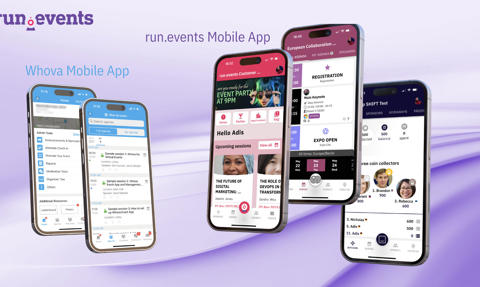

Whova began its journey as a mobile app for events, and over time, it expanded its features to aid in event organization. On the other hand, run.events was built from the ground up, specifically designed to assist event organizers with all aspects of the event planning and organization process. It simultaneously provides event attendees, speakers, and sponsors with a state-of-the-art, modern-looking mobile app.
Looking for a Whova alternative? Discover how run.events outperforms Whova in various aspects. When compared to run.events, Whova falls short in content, speaker, and agenda management. It also lacks robust sponsor management, and its badge design, printing, and registration desk capabilities are limited. Whova's user interface feels outdated and challenging to navigate. In contrast, run.events offers a modern, user-friendly interface following Google's Material Design guidelines. Whova's pricing lacks transparency, with a base price and numerous add-ons that can significantly increase costs. Event organizers wanting to sell tickets through Whova face a separate pricing tier, adding to the overall expense. Whova's pricing structure resembles budget airlines, where every additional feature incurs extra charges.
On the flip side, run.events has a clear and transparent pricing model, generally saving customers 30-40% compared to Whova's pricing. Historically, Whova has excelled as an Event Mobile App. However, Whova mobile app looks quite outdated now. It has a tendency to be overly chatty, sending too many notifications, which can distract attendees during events.
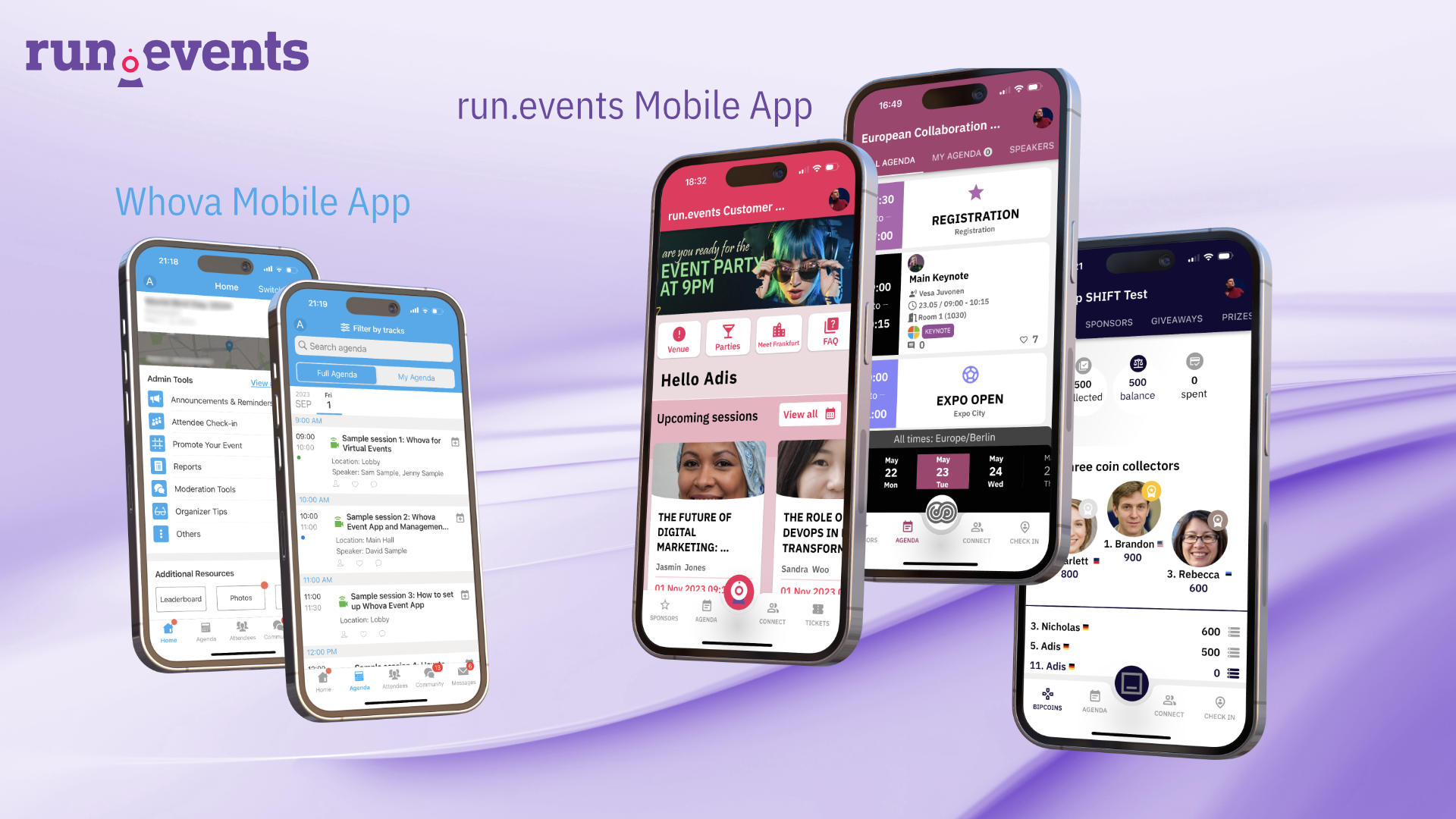
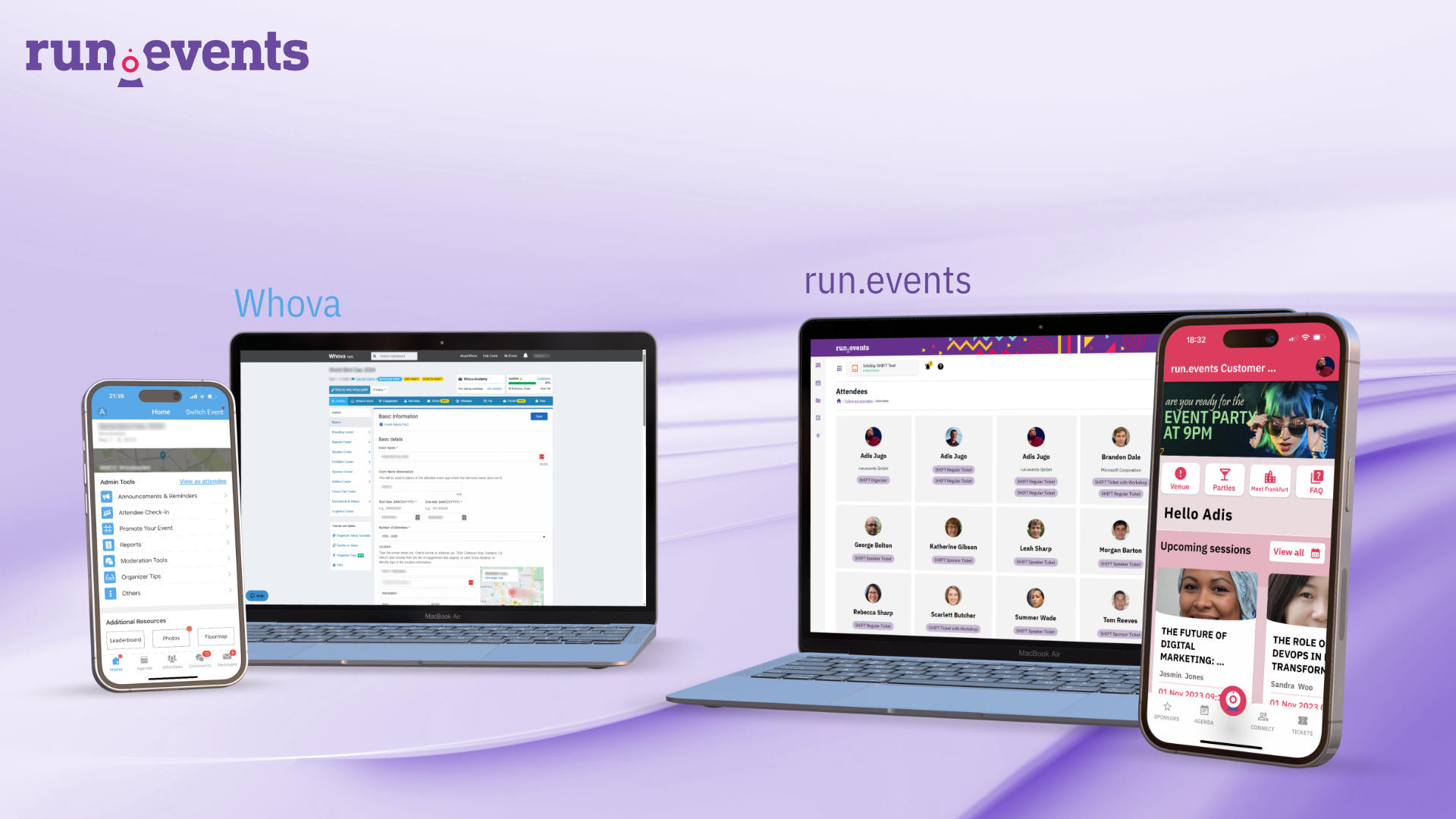
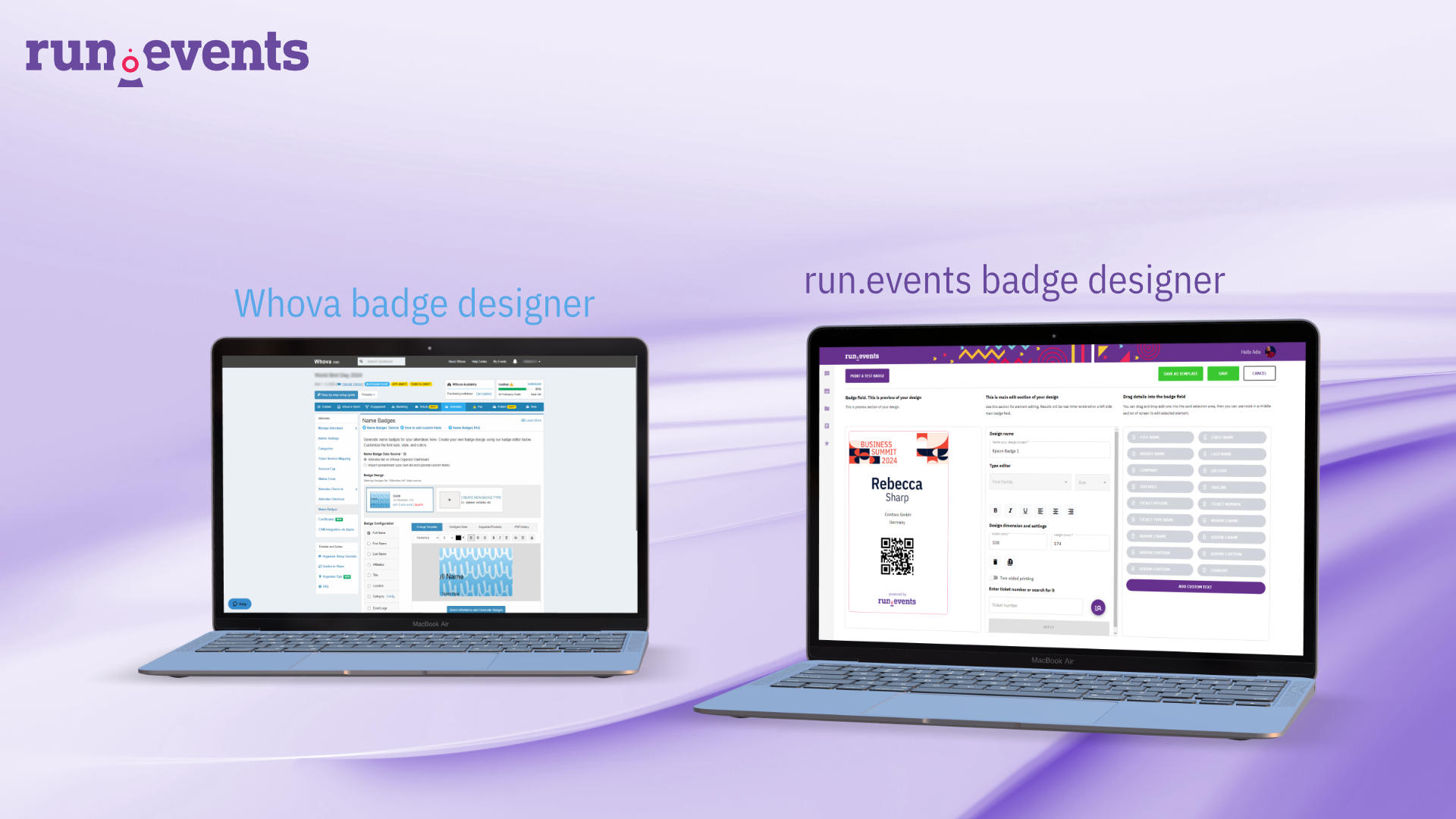
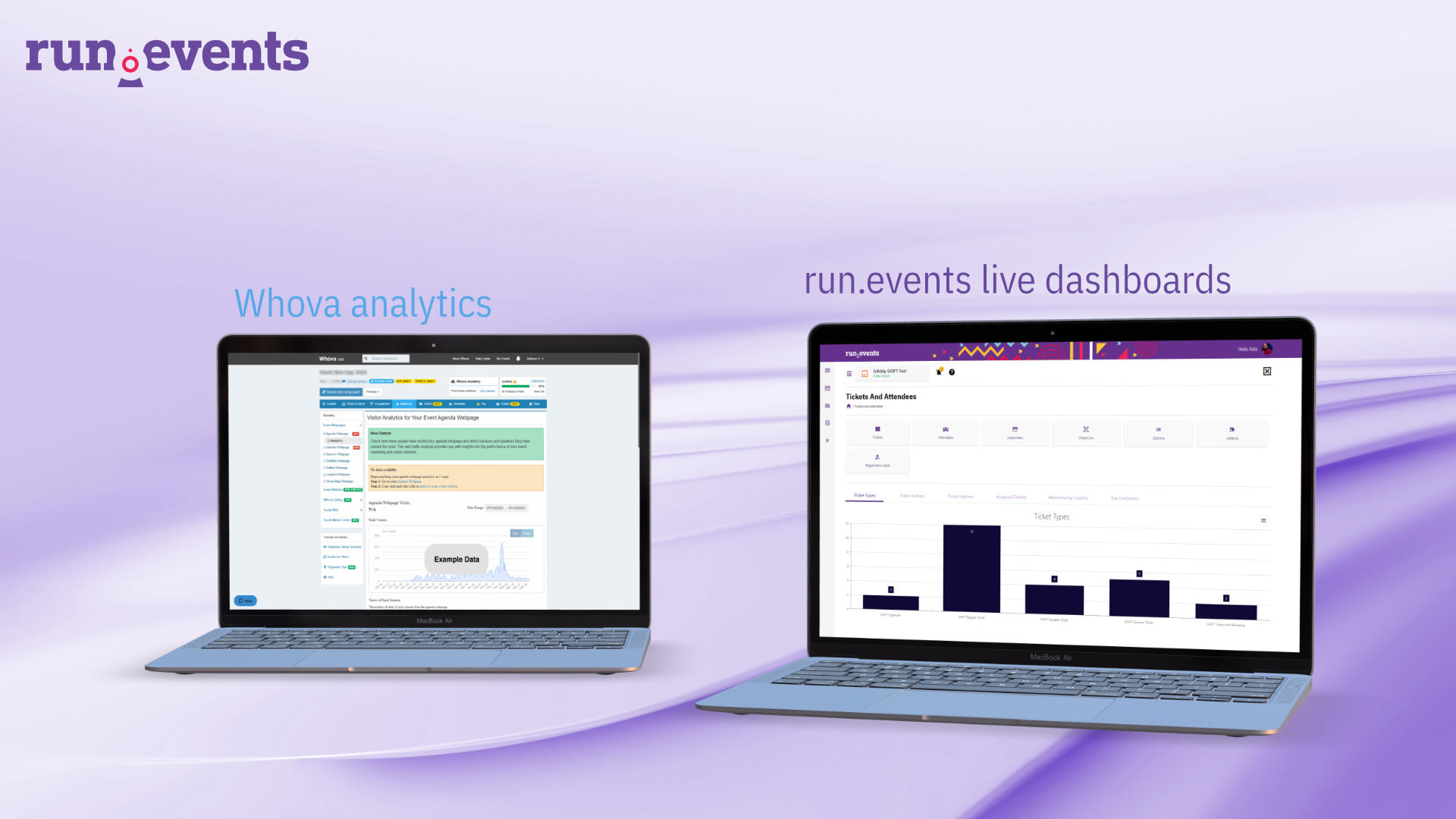
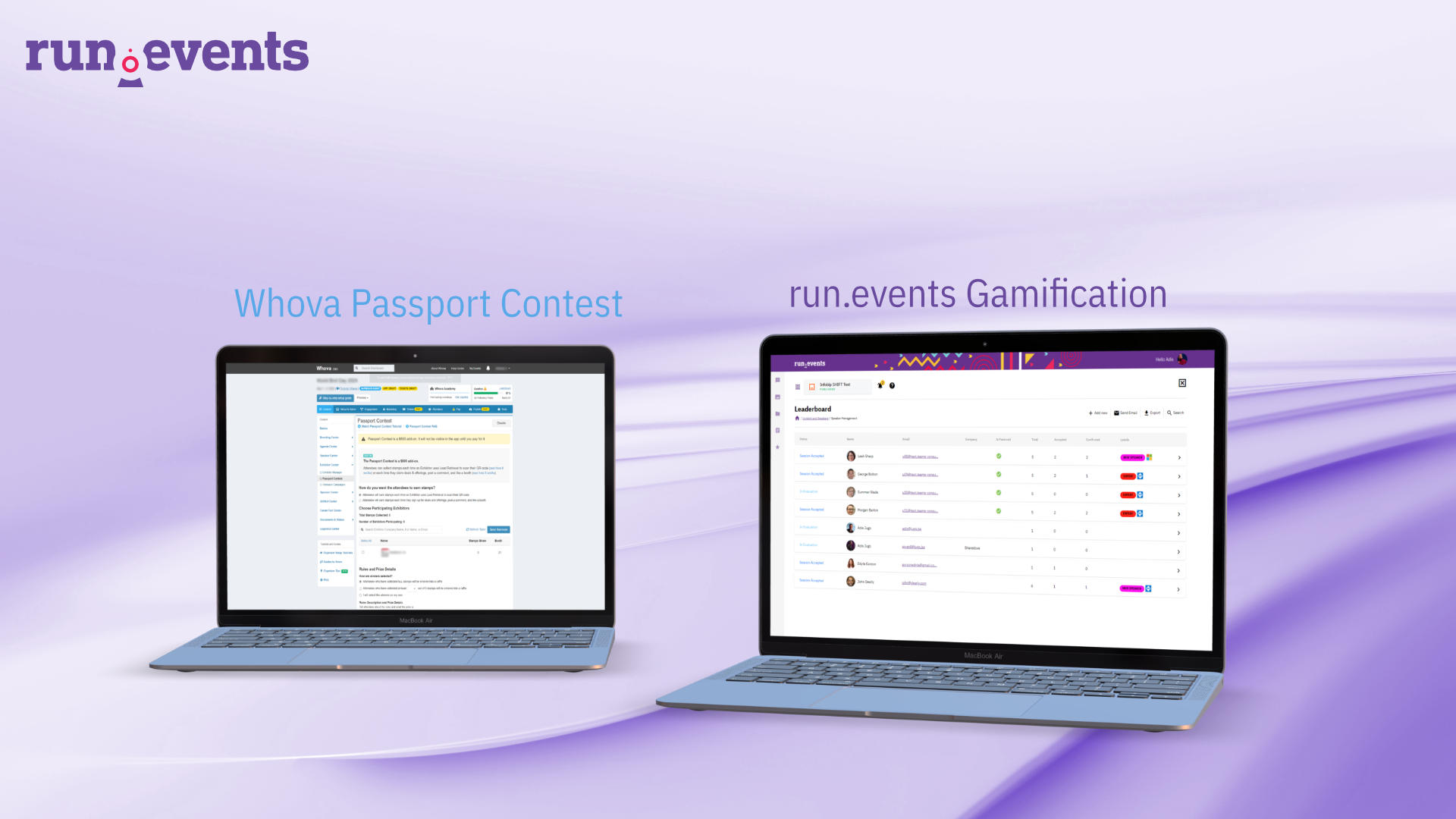
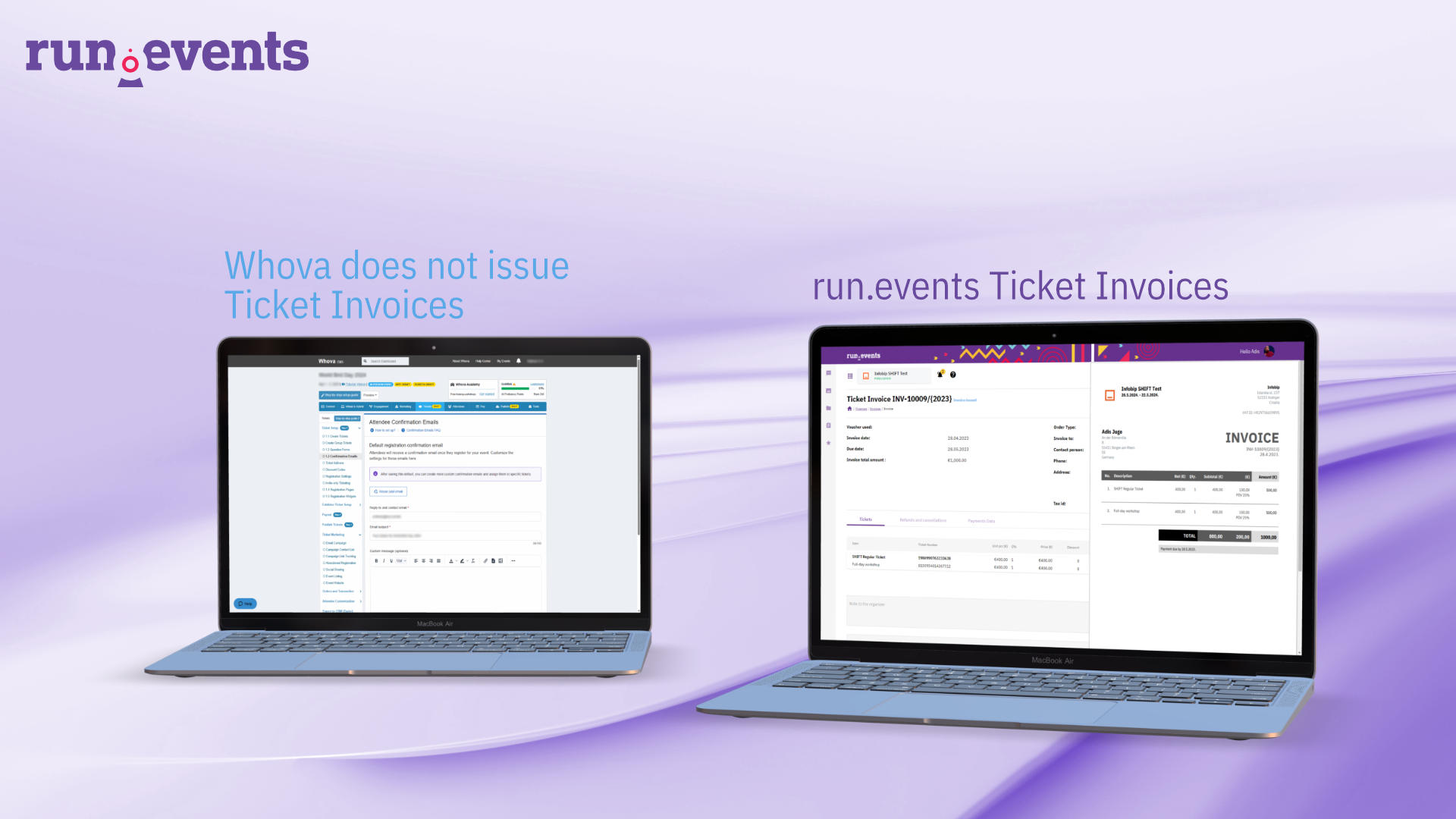
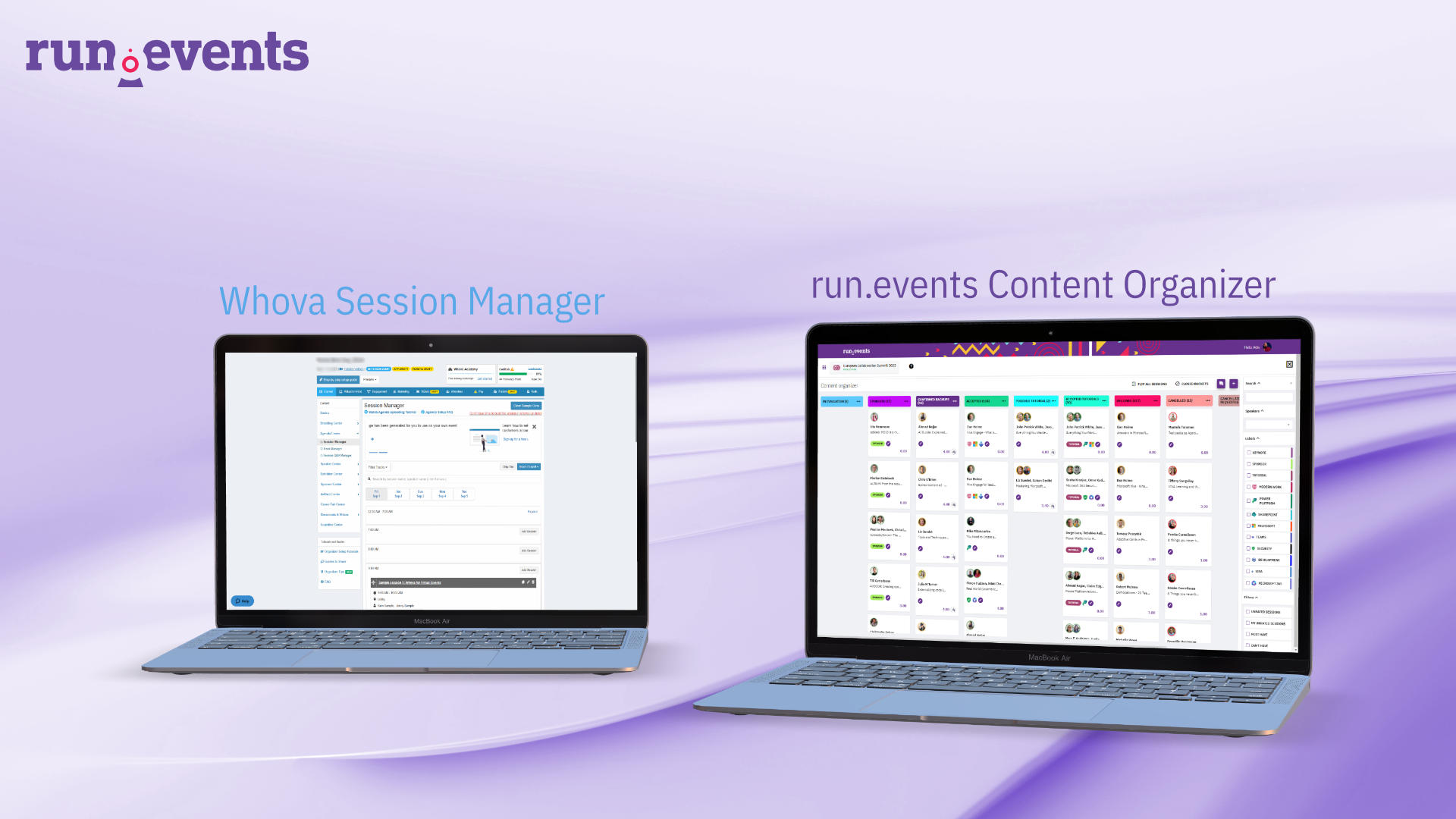
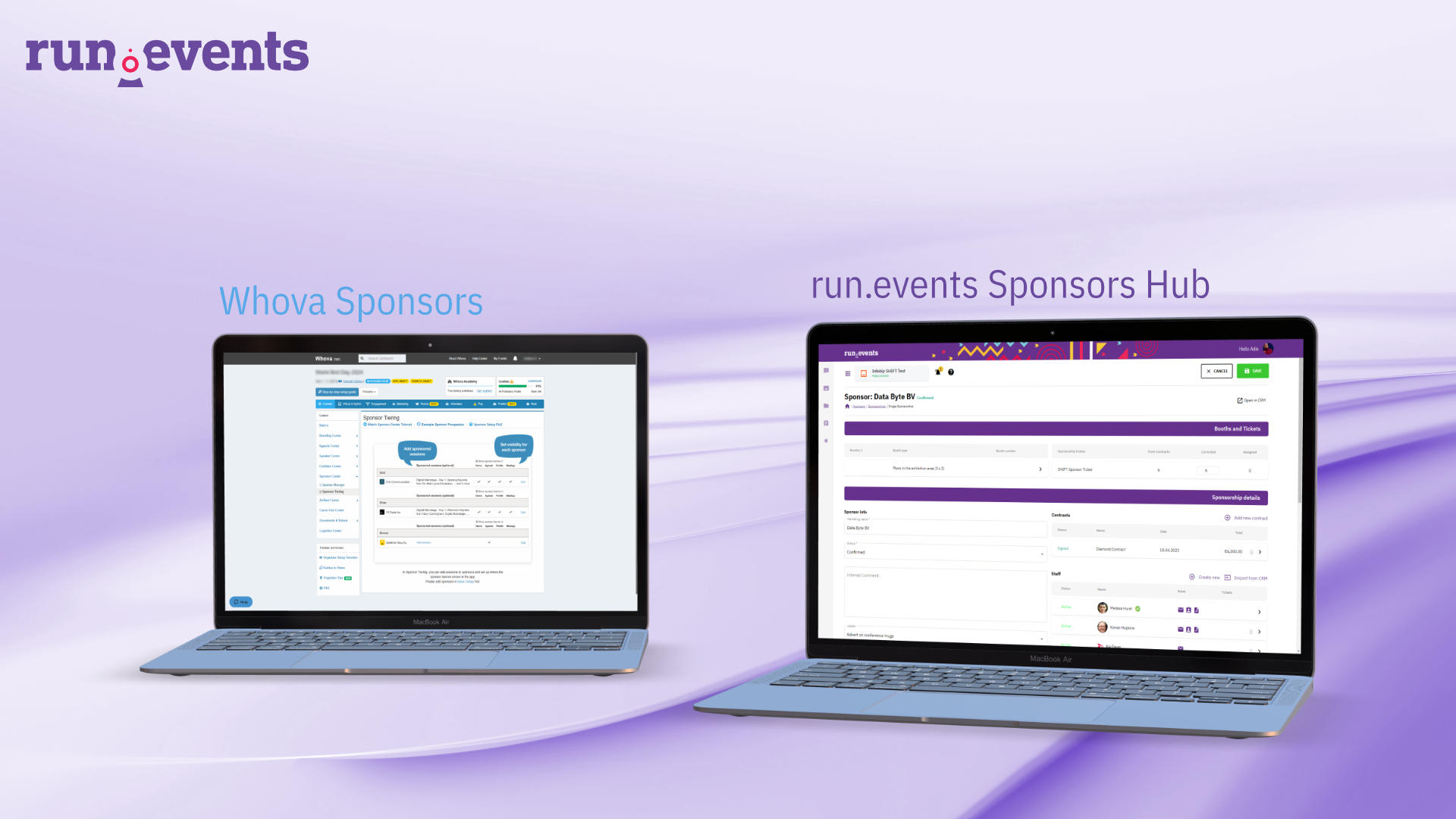
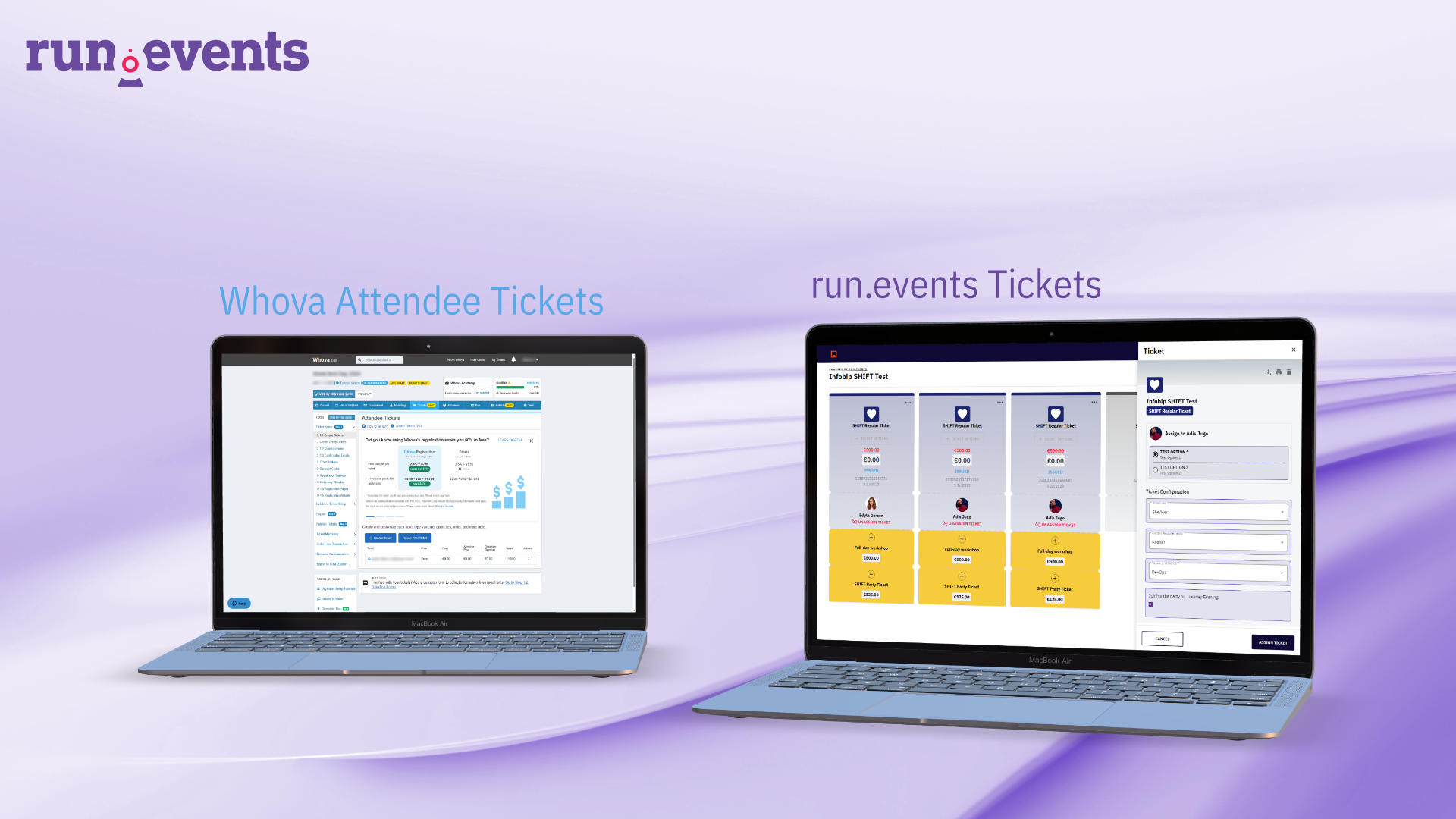
While Whova provides the convenience of duplicating settings for recurring events, run.events goes further to outperform Whova. With run.events, event organizers can not only replicate event settings but also enhance sponsor and attendee engagement between events. You can efficiently track sponsor participation across multiple occurrences, identify valuable customers, and provide them with exclusive promotions and discounts for upcoming events.
| Rating Whova: | ★★ |
| Rating run.events: | ★★★★★ |
Both Whova and run.events provide ticket configuration and sales features, using widgets that can be embedded into event websites or separate ticket purchase web pages where users can be redirected. They both also support ticket add-ons and custom fields for tickets. However, run.events outperforms Whova in terms of flexibility for ticket and add-on creation, as well as custom ticket form options.
Moreover, an essential advantage of run.events is that the price for ticket sales is seamlessly integrated into the overall cost, providing a more transparent pricing structure. In contrast, Whova adds the cost of ticket sales on top of the pricing for other modules, potentially leading to hidden fees.
| Rating Whova: | ★★★★ |
| Rating run.events: | ★★★★★ |
Whova lacks an integrated invoicing system, leaving the responsibility of creating invoices and receipts to event organizers. This can be a hassle for both organizers and attendees.
In contrast, run.events outperforms Whova by offering a comprehensive invoicing module. This includes customizable and personalized invoice designs, automatic generation of invoice corrections and cancellations in response to ticket changes and refunds, as well as the ability to track paid invoices and send payment reminders.
| Rating Whova: | ★ |
| Rating run.events: | ★★★★★ |
If you consider making the switch from Whova to run.events, know that while Whova's capabilities are limited to basic agenda management, where users must manually import speakers and sessions from Excel, run.events outperforms Whova in several key areas.
run.events offers a comprehensive suite of content, speakers, and agenda management tools. It simplifies the entire process, from creating and managing calls for speakers and session submissions to content team coordination, content selection, speaker management, and agenda creation. Moreover, run.events enables efficient session feedback collection.
| Rating Whova: | ★★ |
| Rating run.events: | ★★★★★ |
While Whova provides basic sponsor and exhibitor management features, run.events outperforms Whova in multiple aspects. Whova's sponsor and exhibitor management is limited to listing them within the app. It offers exhibitors basic lead retrieval functionality through the mobile app but lacks customization options. Event organizers can't choose which attendee data sponsors can access, nor can exhibitor personnel make custom notes or classify leads on the spot.
In contrast, run.events covers the entire sponsor management lifecycle, from initial negotiations to contract signing, including contract addendums and additional orders. It features a "Sponsor Staff" hub for tracking and managing sponsor personnel, integrated with the run.events CRM for seamless transitions between events. With run.events, sponsor personnel have automated lead retrieval capabilities, and organizers have control over which attendee data sponsors can access and export. run.events also empowers sponsors to classify leads and record notes during the lead retrieval process.
| Rating Whova: | ★★★ |
| Rating run.events: | ★★★★★ |
While Whova offers badge design, printing, and global/session check-in, it falls short in understanding tickets and badges fully. Whova lacks the ability to invalidate or issue replacement badges, and its badge designs are primarily basic, with more appealing designs incurring additional costs.
On the other hand, run.events excels in participant lifecycle management, covering ticket sales, attendee registration, badge design, and printing. You can choose to print badges on-site using your equipment, create high-quality PDF designs for professional printing, or use a combination of both methods. run.events also stand out in badge management, enabling easy badge issuance and invalidation, simplifying replacement badge processes, and enhancing room entrance control. Additionally, run.events offers self-service check-in and badge printing through the RunEvents Kiosk app, reducing attendee queues and alleviating the workload on registration desk staff.
| Rating Whova: | ★★★ |
| Rating run.events: | ★★★★★ |
Whova's gamification support is limited to a basic "stamp-card" option, where attendees collect stamps by visiting various booths. In contrast, run.events offers a robust gamification module that takes attendee engagement to the next level. Attendees accumulate "coins" by participating in sessions, exploring exhibitors, completing surveys, and providing session feedback. These coins can then be exchanged for rewards from event organizers or sponsors, typically including coffee, drinks, event merchandise, and sponsor-related items.
run.events also features an event leaderboard prominently displayed within the mobile app, showcasing attendees with the most earned coins. This fosters a sense of competitiveness and motivates attendees to strive for more coins by visiting sponsors and attending sessions. These advanced gamification features from run.events significantly enhance sponsor-attendee engagement and drive increased traffic to sponsor and exhibitor booths. As a result, sponsors are more likely to return to the event year after year.
| Rating Whova: | ★★ |
| Rating run.events: | ★★★★★ |
While Whova's event app was traditionally known for its functionality, it has become outdated over time, resulting in a cumbersome and less user-friendly experience, especially with the addition of new options without a reimagined user interface.
On the other hand, run.events offers a sleek and contemporary mobile app that provides attendees with a seamless experience. With the run.events app, attendees can effortlessly browse event agendas, access session details and speaker information, create personalized schedules, connect with fellow attendees, form private and public groups, and participate in social events. Additionally, the app fully supports gamification features. Moreover, mobile app from run.events empowers sponsors to efficiently scan and classify leads, maintain their event presence by showcasing logos, marketing texts, and downloadable materials, and engage with attendees effectively.
| Rating Whova: | ★★★ |
| Rating run.events: | ★★★★★ |
While Whova provides post-event reports with basic statistical information in a rudimentary format, run.events outperforms Whova in real-time data analytics. run.events offers live data dashboards throughout the event lifecycle, ensuring organizers are continuously informed. They can track ticket sales, revenue generation, sponsor and exhibitor contracts, and session submissions and selections in real-time. This valuable information is presented in visually appealing dashboard views, providing organizers with immediate insights into event performance.
| Rating Whova: | ★★ |
| Rating run.events: | ★★★★★ |
Whova utilizes a complex pricing system based on the number of attendees ("attendee tiers") and countless separately billed add-ons. This system is akin to budget airlines, where every piece of baggage and every cup of coffee comes at an additional cost.
Whova's price quote spans 28 pages, and this total is expected to be paid in advance. For an event with 2,500 attendees, Whova's quote in the summer of 2023 was $12,000. This price comprises a standard price of $5,399, along with add-ons for exhibitors, sponsors, gamification (stamp cards), and session feedback.
If event organizers use Whova to manage and sell their event tickets, Whova charges a rate of 2.5% + $0.99 per each ticket sale.
For an event with 2,500 attendees and an average ticket price of $800, using this formula, Whova would charge the event organizer $52,475 solely for ticket sales.
According to the run.events price calculator, the total price of run.events for the same event would be $44,190, which is more than 30% less than Whova, saving event organizers over $21,200 per event.
| Rating Whova: | ★★ |
| Rating run.events: | ★★★★★ |